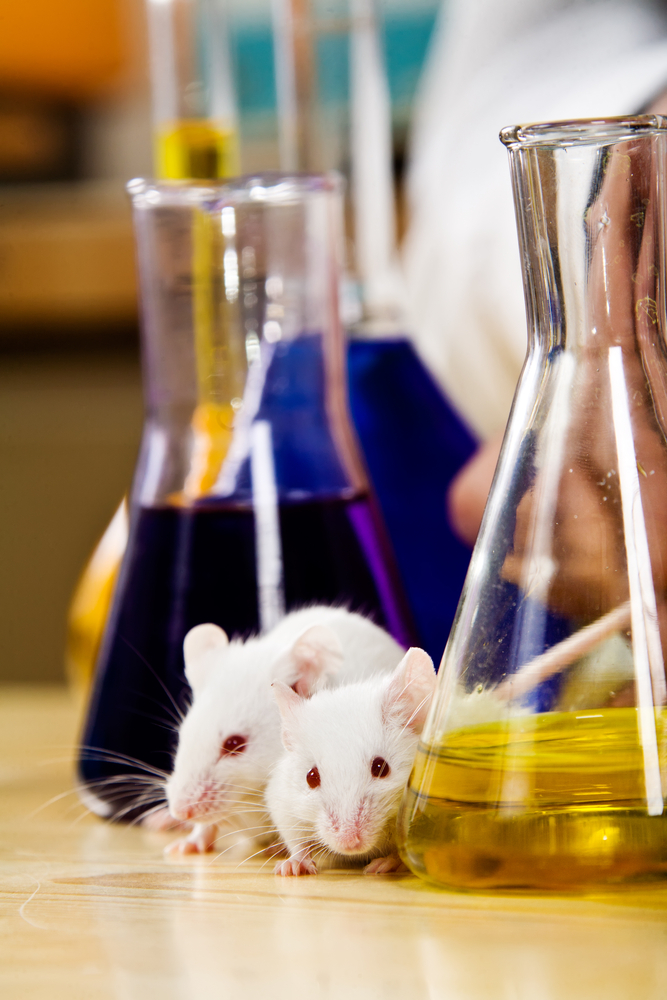 A recent study conducted by Johns Hopkins Kimmel Cancer Center researchers and presented at the 2014 annual meeting of the American Society of Radiation Oncology (ASTRO) in San Francisco by Andrew Sharabi, M.D., Ph.D., showed evidence that highly focused radiation in combination with an anti-PD1 checkpoint inhibitor, can improve the immune system’s capacity to fight cancer cells.
A recent study conducted by Johns Hopkins Kimmel Cancer Center researchers and presented at the 2014 annual meeting of the American Society of Radiation Oncology (ASTRO) in San Francisco by Andrew Sharabi, M.D., Ph.D., showed evidence that highly focused radiation in combination with an anti-PD1 checkpoint inhibitor, can improve the immune system’s capacity to fight cancer cells.
The research team used mice models of melanoma and breast cancer, and used stereotactic image-guided radiation therapy to irradiate one of the animal flanks, while the other remained protected.
Before, during, and after radiation, the animals were injected with an experimental anti-PD1 inhibitor, a type of immune therapy that can revert the inhibition of anti-tumor responses by the host immune system.
The results demonstrated that combination treatment was able to significantly reduce tumor size by up to six times more than with either therapy alone.
Additionally, upon using combination therapy, there was an increase in tumor-specific antibodies and T-cells, both of which can recognize and kill tumor cells.
Moreover, an increase in memory T cells was also detected in mice treated with immunotherapy-radiation treatment, translating into a decreased probability of cancer recurrence.
“The immune system has powerful brakes, and removing those brakes with checkpoint inhibitors may be key to unleashing the full potential of the immune system against cancer. Adding radiation therapy to this mix may provide an additional boost by increasing tumor cell death and releasing targets for the immune system. We found that focused radiation therapy, once thought to suppress the immune system, actually increases specific, antitumor responses from the immune system,” Dr. Sharabi said in a Science Daily interview.
To further prove the combination treatment generated immunological memory, Dr. Sharabi and colleagues transferred immune cells taken from treated mice into normal mice, and then implanted new tumors under the skin of these mice, observing that the transferred cells were able to inhibit tumor growth, suggesting they were already primed to attack specific sites outside of the radiation area.
The underlying mechanism behind the radiation effect seems to be the production of chemokines, a type of immune signaling molecules that can help mount an immune response.
The research team is currently conducting further studies to determine the optimal radiation dose and timing necessary to trigger an optimal immune response.


